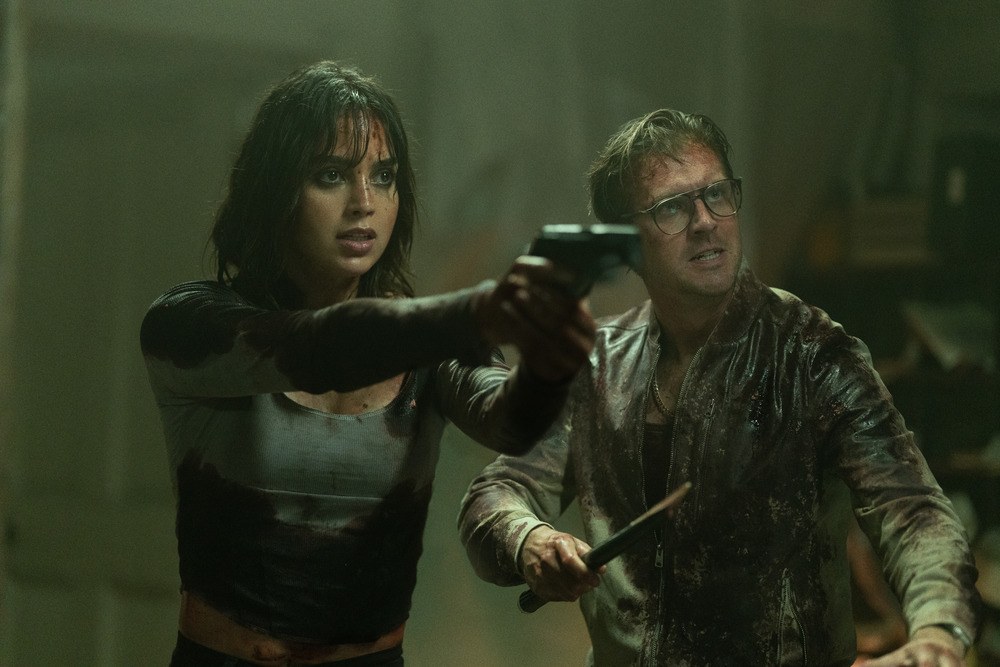Abigail

Melissa Barrera and Dan Stevens star in ABIGAIL. (Photo: Universal Pictures)
Toying with B-movie conventions and recombining familiar genre elements, Abigail is a bloody romp for which a fresh and coherent vision remains elusive.
This slick and stylish thriller from the directing tandem of Matt Bettinelli-Olpin and Tyler Gillett (Scream VI) is inspired by the cheesy 1936 sequel Dracula’s Daughter, which provides story clues if not outright spoilers.
It’s a twisty crime saga noteworthy for some gruesome over-the-top death scenes, although the laughs and frights tend to clash rather than complement one another.
The film establishes tension with an extended opening sequence involving the break-in and kidnapping of a 12-year-old ballerina from an affluent family, left home alone following a “Swan Lake” performance.
The crooks have been recruited for very specific jobs within a mysterious scheme that ostensibly will have them watch over Abigail (Alisha Weir) for a night and then share in the ransom. Anonymity is key.
They deliver the girl to a rural mansion where the apparent mastermind (Giancarlo Esposito) delivers final instructions: “It’s a 24-hour job, and the hard part is already over,” he explains.
But that’s not the case, of course. Gradually, we learn details about backgrounds and motives. Joey (Melissa Barrera) is a young mother whose maternal instincts trigger a conscience when dealing with the captive. Frank (Dan Stevens) is more of a greedy savage who puts up with his collaborators as a means to an end.
At any rate, their collective trust is already fragile as they confront paranoia and recalibrate their moral compasses. Random noises and strange happenings interrupt the evening. The doors are locked, prompting a fight for survival. And that titular youngster in her tutu isn’t nearly as innocent as she seems.
Conceptually it’s an intriguing effort to update and reimagine the source material, but the screenplay wastes too much time on its bickering perpetrators talking themselves in circles. The film doesn’t take itself too seriously, yet also fails to provide sufficient incentive for emotional investment in who lives and who dies.
Turning more formulaic after pirouetting into straight horror territory, Abigail struggles to maintain suspense while relying too heavily on visual gimmicks and jump scares.
Once you put the narrative puzzle together, the ensuing bloodbath doesn’t provide much in which to sink your teeth.
Rated R, 109 minutes.